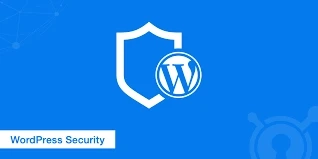There's little question that you've thought about using WordPress as a safe CMS if you're developing a new business website.
One of the most widely used CMSs is WordPress, and it offers a tonne of features and extensions that can be a really nice addition.
Security is the top concern, though, since this is a business website. Is WordPress safe enough to handle your company's website's complexity and privacy concerns?
Is WordPress secure?
As long as website owners adhere to security best practises, WordPress is a secure platform to power your website. Although the WordPress core is secure, there are many things that can be done to maintain the website's security and prevent attacks.
There is far more to be earned by targeting WordPress websites given its immense popularity. Since they can duplicate their efforts to target millions of websites, hackers actively spend time and effort looking for weaknesses in WordPress.
There is no CMS that is impenetrable, and every CMS has its unique security flaws. In truth, many problems that still remain on other CMS have long since been resolved on WordPress thanks to its large and active community.
WordPress is, if we are being entirely honest, as secure as it can be. There are various causes for this, including:
The WordPress core team is quite productive and includes some of the top programmers in the world.In order to maintain its functionality, effectiveness, and security, WordPress is regularly updated and enhanced.Their team of developers rapidly resolves any problems that may occur with WordPress.To protect WordPress from malicious users, some of the greatest safeguards are used.Millions of dollars are spent annually by WordPress to keep its platform secure.If the usage of WordPress by some of the greatest digital companies, like BBC America, TechCrunch, The Walt Disney Company, and many more, isn't proof enough that it's a safe platform, consider this:
There are ways to hack WordPress websites as well, but this does not make it any less secure than other CMS providers. No digital asset is 100% secure.
How do WordPress websites get hacked?
WordPress was designed with security, privacy, and user data protection in mind, which is why millions of users trust it. But in order to add more functionality to the website, WordPress utilizes a number of extensions. These extensions, like themes and plugins, are frequently made by other parties.
Themes and Plugins Security
Nothing is completely secure, and every software contains security flaws. The same is true for plugins and themes. Security issues might arise from flaws in plugins and themes themselves.
One of the most common reasons for hacking on WordPress websites is extensions. Security risks, however, do not imply that the risks outweigh the benefits. WordPress enables you to run complicated functions for your purposes and actually modify your website to meet those wants.
To keep your website safe, you must take certain additional precautions due to the increased complexity. The security of your website's plugins and themes must be maintained as a result.
User security
Security of websites is not only the duty of service providers but also of active users like web administrators or owners.
You must make sure that security procedures like two-factor authentication, appropriate user roles, etc. are upheld if you want your website to be safe. Even on modest websites, user security lapses can be a significant source of threats.
Never presume you are unimportant or too little to be hacked. Even the tiniest websites may be mined for resources like space, IP addresses, and ways to attack unknown sites.
To make sure that your website is safe, keep an eye out for the following user errors.
Weak WordPress Login Credentials
Have you ever noticed how most websites advise you to choose secure passwords when logging in? There is a rationale for that.
Stronger passwords are challenging to decipher using a brute force assault, so it's not just that they don't want you to remember the password. If you utilise dictionary terms, hackers may simply access your account using dictionary attack bots.
As a result, you need to keep your website's login credentials secure.
Delaying or Deferring WordPress Updates
WordPress updates occasionally include security fixes that resolve any problems or vulnerabilities in your website and are not merely for adding new features. However, if you do not often update WordPress, these issues may continue to exist and become a target for attackers.
Assigning Incorrect User Roles
Have you ever granted an author on your website Editor access in the hopes that it will be beneficial to them? In essence, what you've done is grant authors extra user capabilities and authentication that they don't necessarily need. Individual users or nefarious entities who intercept the procedure may take advantage of this.
Not Installing SSL
WordPress updates occasionally include security fixes that resolve any problems or vulnerabilities in your website and are not merely for adding new features. However, if you do not often update WordPress, these issues may continue to exist and become a target for attackers.
Using Pirated Themes and Plugins
Have you ever granted an author on your website Editor access in the hopes that it will be beneficial to them? In essence, what you've done is grant authors extra user capabilities and authentication that they don't necessarily need. Individual users or nefarious entities who intercept the procedure may take advantage of these.
Now, I highly recommend you to visit the How to secure WordPress site as it contains the best practices for WordPress website security along with some of the best free & premium plugins of 2022
Thanks for Reading! Cheers!


